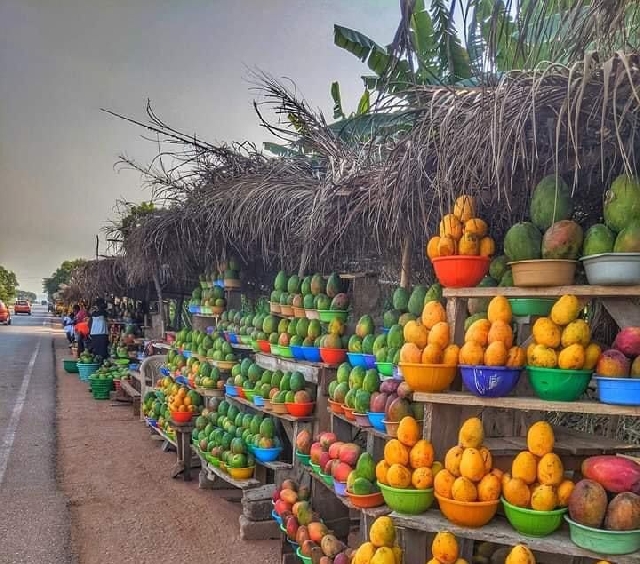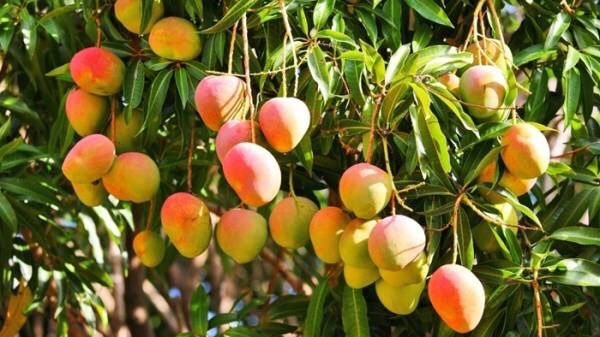E/R: The rejected ‘GOLD’ in Somanya
 The farmers in these areas, however, bemoan the low income that they make from harvesting and selling their mangoes
The farmers in these areas, however, bemoan the low income that they make from harvesting and selling their mangoes
When we talk about Kroboland or Krobos what mostly comes to mind is Somanya, popularly known as the Mango city.
Natives of Kroboland, are either from Yilo Krobo made up of Somanya Odumase in the Lower Manya Krobo or Asesewa in the Upper Manya Krobo. These are the most popular towns in the Krobo enclave.
The dwellers of these towns are 90 per cent farmers, the remaining 10 per cent, are engaged in other business including trading, gari production, bead-making and driving.
The farmers in Kroboland are engaged in mango, cassava and yam farming. The most popular, being mango.
The farmers in these areas, however, bemoan the low income that they make from harvesting and selling their mangoes.
A resident of the area, Felix Martey Agor, who spoke to CTV’s Ahmed Kamal, disclosed that he owns over a 10-acre mango farm, but at the end of each harvest period, he ends up spending more on the farm than he makes from the sale of the produce.

He further disclosed that people travel from all over to purchase his mangoes, including Takoradi, Nkwawkaw, Tema and Accra.
Climate change, Mr Agor noted, has also impacted on their activities and called on the government and the Ministry of Agriculture to come to their aid and organise training sessions on how to deal with climate change conditions.
He further noted that since the introduction of government’s Planting for Food and Jobs Programme, the Somanya enclave and surrounding communities which grow mango, has not been considered.
He suggested that a mango factory can be established by the government under the programme just like the Ekumfi pineapple factory, as a means of job creation for the youth of Kroboland who are mostly jobless with several unemployed graduates.
According to Mr Agor, this will attract the youth to venture into mango farming.
Another mango farmer, Narh Odjeh Evans, who owns an acre of mango farm also appealed to the government to come up with an avenue that will assist mango farmers to sell their produce to government, just like the Asutuare banana/plantain factory.
He stressed that this would serve as an incentive for him to hire more farm hands since he knows he has a ready market available.
“Market women always short change us when they come to buy because we have no place to store the farm produce after harvesting to prevent them rotting away. Due to that, we have no option than to sell to them at the low price they demand.
“One is being sold more than GHS10 in Accra, but no one will purchase one for GHS5 in Somanya so government must come to our aid,” he appealed.
Source: classfmonline.com
Trending Features

Ghana witnessed the most impactful creatives campaign by any political party in history this year – Kojo Preko Dankwa
02:05
Renewed hope for Ghana’s poultry industry
16:52
Agordzo the zero rebel: Zero discipline, zero integrity and zero credibility
09:22
Resetting Ghana together: A call to unity of purpose for dear nation
09:32
Owula Mangotey cautions Akufo-Addo against plans to sack Dampare
11:31
The resilience of women entrepreneurs and stratcomm Africa’s 30-year journey of impact
17:46
Court ruling on re-collation flawed
12:31



